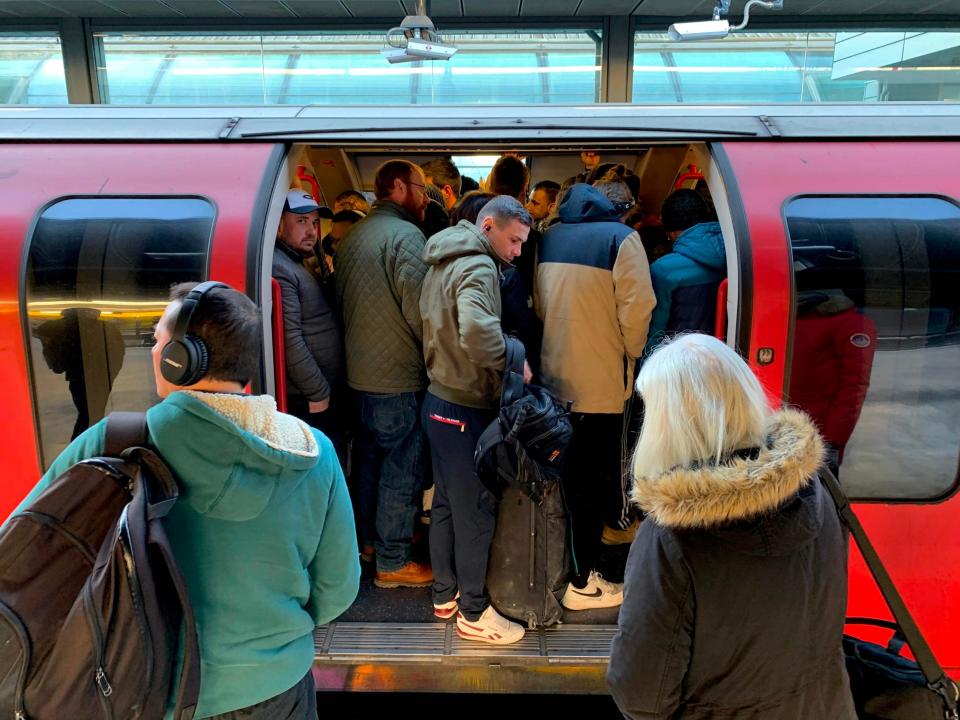Rishi Sunak rescue plan for ‘strivers’ as coronavirus social distance fines set at £60

Rishi Sunak pledged “we’re in this together” today as he unveiled a rescue plan for self-employed strivers and as fines for people who break social-distancing rules were set at £60, rising to around £120 for repeat offenders.
In the fourth major bailout in under three weeks, the Chancellor will unveil a dedicated website for the self-employed to register for cash support to help them and their families through the coronavirus crisis.
It may be late April or May before the scheme is able to deliver money into bank accounts because of the complexity of devising a system for the most diverse sector of the economy.
As an interim measure, people will be able to take out interest free and fee-free loans to tide them over, or use the benefits system.
Speaking to the Evening Standard, Mr Sunak emphasised the Government’s wish to put its arm around families and businesses who are facing hardship due to Covid-19.
“We’re in this together and that includes the hard-working self-employed,” he said.
The theme of national unity was also behind the Government’s decision to set fixed penalty notices for people breaking the new rules on social-distancing at a punitive £60 for a first time, a level seen as a deterrent for illicit gatherings and other breaches.
It will be reduced to £30 if paid within 14 days but will be raised — probably doubled, according to No10 sources — for repeat offences.
Police were out at Underground stations again this morning to deter unnecessary travel.
Early indications were that Tube travel was down 13 per cent compared with yesterday, and down 56 per cent since Monday.

Mr Sunak’s latest bazooka is seen as critical to enable millions of self-employed construction workers, small traders and members of the gig economy to feel they can finally stop work without going hungry and thus reduce crowding in Tube carriages.
“This has been incredibly complicated and means some difficult choices,” said a Treasury source. “It won’t be perfect, but it’s the right thing to do.”
Cash support will be means tested, so those earning above a threshold, expected to be between £30,000 and £50,000, are ineligible.
It will be capped at a monthly amount which experts predict will be more generous than the £1,700 recommended by the Resolution Foundation think tank.
The scheme will be administered by HM Revenue & Customs, but the complexity arises from the fact that their records of the five million people declaring earnings from self-employment only tell part of the story.
Most importantly, they do not show whether someone’s livelihood has been devastated by Covid-19 or whether they are one of the minority, such as online traders, who are making more money from the crisis because housebound customers are shopping from home.
Other cases are blurred, such as taxi drivers who have lost most of their customers but who may be hired to ferry NHS nurses and doctors to work safely at a lower rate than the meter.
Read more
Can hand sanitiser gel protect against coronavirus?
How is the UK preparing for coronavirus?


